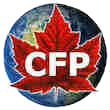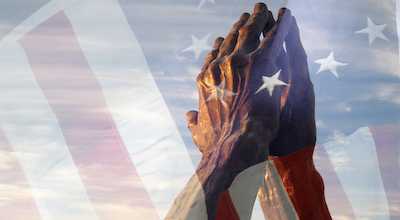—What it Means
 | By Kelly OConnell (Bio and Archives) Sunday, May 4, 2014 Comments at bottom of page | Print friendly | Subscribe | Email Us |

|
|
And so what did the school do? What any upstanding, modern, socially aware, educational institution would do in this situation—they re-invited the first man pictured performing homosexual acts. (The amateur gay porn star has yet to respond.) What is the message here? That being pictured doing reckless and obscene acts, isn’t nearly as bad as being a “bigot.” Of course, being “bigoted” today means you simply agree with up to 70% of Americans that the Bible’s statements about morality are correct. But is it sane, fair, or even safe to sanction anyone who dares criticize gay rights, while giving sexual adventurers a permanent green light? Is all morality now defined in PC terms? If so, why? And do all who run afoul of PC standards deserve to be driven into the wilderness?
In the meantime, one site titled an essay: “Are the End Times Upon Us? Author Says ‘Unrestrained Immorality’ Mirrors ‘Pandemic Godlessness’ Seen in the Bible.” Civil religion has also fallen to shocking depths, so we must commit ourselves to rebuild our public faith as we repair every other broken part of American society.
|
|
I. What is a Civil Religion?
The civil religion of a nation is a combination of public religious statements, beliefs and symbols, along with the popular morality of the day. It is the most public and least arguable expression of the nation’s many religious beliefs and ideals. One author describes it as the “transcendent universal religion of the nation.” The term civil religion was first used by Jean Jacques Rousseau. But the ancient Greeks and Romans certainly understood the importance of the public display of religious figures and ideals, despite what any private person believed.For example, recent scholarship sheds new light upon the meaning of Greece’s Parthenon, crown jewel of Athen’s famed religious center, the Acropolis. In The Parthenon Enigma (2014), Joan Breton Connelly argues the building’s famed frieze is a depiction of human sacrifice from the play by Euripedes—“Erechtheus.” Here, a mythical King went to the Oracle of Delphi, and was told he would have to sacrifice his daughter to save his city. (PBS clip) Such art gave important lessons to a city frequently menaced by war and death, not the least being that all must sacrifice for the “common good,” for society to last, within the context of pagan religious beliefs.
II. American Civil Religion
A. Pilgrim & Puritan Civil Religion
In America, Pilgrims, Puritans, Founders and presidents have all made conspicuous use of public religious expression. The earliest European Americans cited God, the Bible, and religion in their first documents. For example, the first American agreement—the Mayflower Compact—bases the entire undertaking as a Christian mission. It also bases the laws upon a biblical covenant, in the name of God:IN THE NAME OF GOD, AMEN...Having undertaken for the Glory of God, and Advancement of the Christian Faith…to plant the first Colony in the northern Parts of Virginia; Do by these Presents, solemnly and mutually, in the Presence of God and one another, covenant and combine ourselves together into a civil Body Politick, for our better Ordering and Preservation, and Furtherance of the Ends aforesaid: And by Virtue hereof do enact, constitute, and frame, such just and equal Laws, Ordinances, Acts, Constitutions, and Officers, from time to time, as shall be thought most meet and convenient for the general Good of the Colony; unto which we promise all due Submission and Obedience.The first leader, William Bradford, realized that all the passengers were not respectful of the Pilgrim ways, and so he wrote the above to make sure all were aware of the larger picture. No one could move onshore from the Mayflower without entering into the “civil Body Politick” by signature, according to History.com.
Such an auspicious beginning well outlines the origins of early America—a place where the religious, separatists and even irreligious could all thrive, as long as respect was offered for the foundational Christian ideology.
Upon the ship Arabella, John Winthrop and other Puritans were relocating from England to start anew in America. Winthrop, an English Christian delivered a sermon to those on the Arabella before they went ashore, titled A Model of Christian Charity. This is perhaps the most famous sermon ever delivered in America, and has been used as a model of the Christian mission in the States, ever since.
To read the rest of the article click HERE.